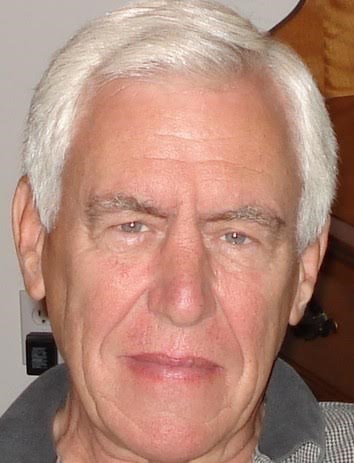Imagine this: a group of students went up to the mountaintop and saw Jesus walking and talking with Sigmund Freud and Karl Marx—two of the most influential people of the modern world. Freud was the founder of the psychoanalytic movement whose work helped a lot of people. Karl Marx thought the working classes deserved to have a larger share of the profits created by their labours. Then from a cloud a voice said: “This is my Chosen One. Listen to him.”  And when they looked up they saw no one but Jesus alone. He had been transfigured for them..
Again, imagine this: a group of business leaders and politicians went up to the top of the mountain and saw Jesus walking and talking with Henry Ford and Mahatma Gandhi. Henry Ford was one of the outstanding business people of the 20th Century. Mahatma Gandhi pioneered nonviolent political change in the liberation of India. Then from a cloud a voice said: “This is my Chosen One. Listen to him.” And when they looked up, they saw no one except Jesus alone. He had been transfigured for them.
Peter and James and John went up with Jesus to a high mountain and saw Moses and Elijah walking and talking with Jesus. God had given the Ten Commandments and other laws to Moses who wrote the Torah and led the people of Israel out of bondage in Egypt. Elijah was the prototype of the Ultimate Prophet—the Messiah who, like Elijah, would be full of the Spirit of God. Then from a cloud a voice said: “This is my Chosen One. Listen to him.” And when they looked up they saw no one except Jesus alone. He had been transfigured for them.
The transfiguration of Jesus happens when anyone sees Jesus as the one to listen to. And could it be that the great religious figures like Mohammad or Buddha or Baha Ullah are transfigured for their followers? And what specifically would the transfiguration mean?
Followers of Jesus have seen his transfiguration to mean that he is the test or criterion                                                                                                                                                                                                                                        or standard for what is truly the word or laws of God in the Scriptures. There are some things in the Scriptures that do not measure up to the standard of Christ. When modern “prophets” claim on scriptural grounds that God will eventually wipe out everyone except a chosen few of their followers it doesn’t fit with the compassion and justice that we see in Jesus. And a law requiring stoning or imprisoning of people who have same-sex relations with those whom they love does not fit with the understanding of love we have seen in Jesus. Transfiguration can have some immense implications!
For the disciples, Jesus was transfigured to become the criterion of Spirit as well as criterion of the Scriptures and the law. There are many expressions of spirit. Not all are Godly Spirit. Righteous anger is a spirit that says in effect “They deserve whatever they get. They have done things that are wrong.  Damn them, fire them, teach them a lesson, let them live in jail for the rest of their lives.”  Righteous anger—a common spirit among human beings that often does not measure up to the standards of Jesus’ Spirit.
Jesus is transfigured for us when his Spirit takes precedence over any spirit, or any law, or any social values, or any philosophies or any wisdom that conflicts with his Spirit.
Whom might you and I see walking with Jesus on the mountain of Transfiguration? And what might Jesus ask of them? Jesus might ask Henry Ford: “Does my world really need so many new cars, not to mention tanks, submarines and fighter bombers”? He might ask Mahatma Gandhi: “In a global-village-world should patriotism really be the supreme commitment for people”? Jesus might ask Sigmund Freud: “Does the inner world of thoughts and feelings have no room for God’s Spirit”? And Jesus might ask Karl Marx: “Is money really the most important and powerful force in human history?  What about faith and hope and love”?
Are we listening for the voice from the cloud? Â Has Jesus or anyone been transfigured for us? And what does he or she say to the others on our mountaintops?
 Paul Newmans is a retired United Church minister, and retired Professor Emeritus of Theology at St. Andrew’s College, Saskatoon. He lives in Sooke, 91Ô´´ Island.Â
Paul Newmans is a retired United Church minister, and retired Professor Emeritus of Theology at St. Andrew’s College, Saskatoon. He lives in Sooke, 91Ô´´ Island.Â
You can read more articles on our interfaith blog, Spiritually Speaking,


